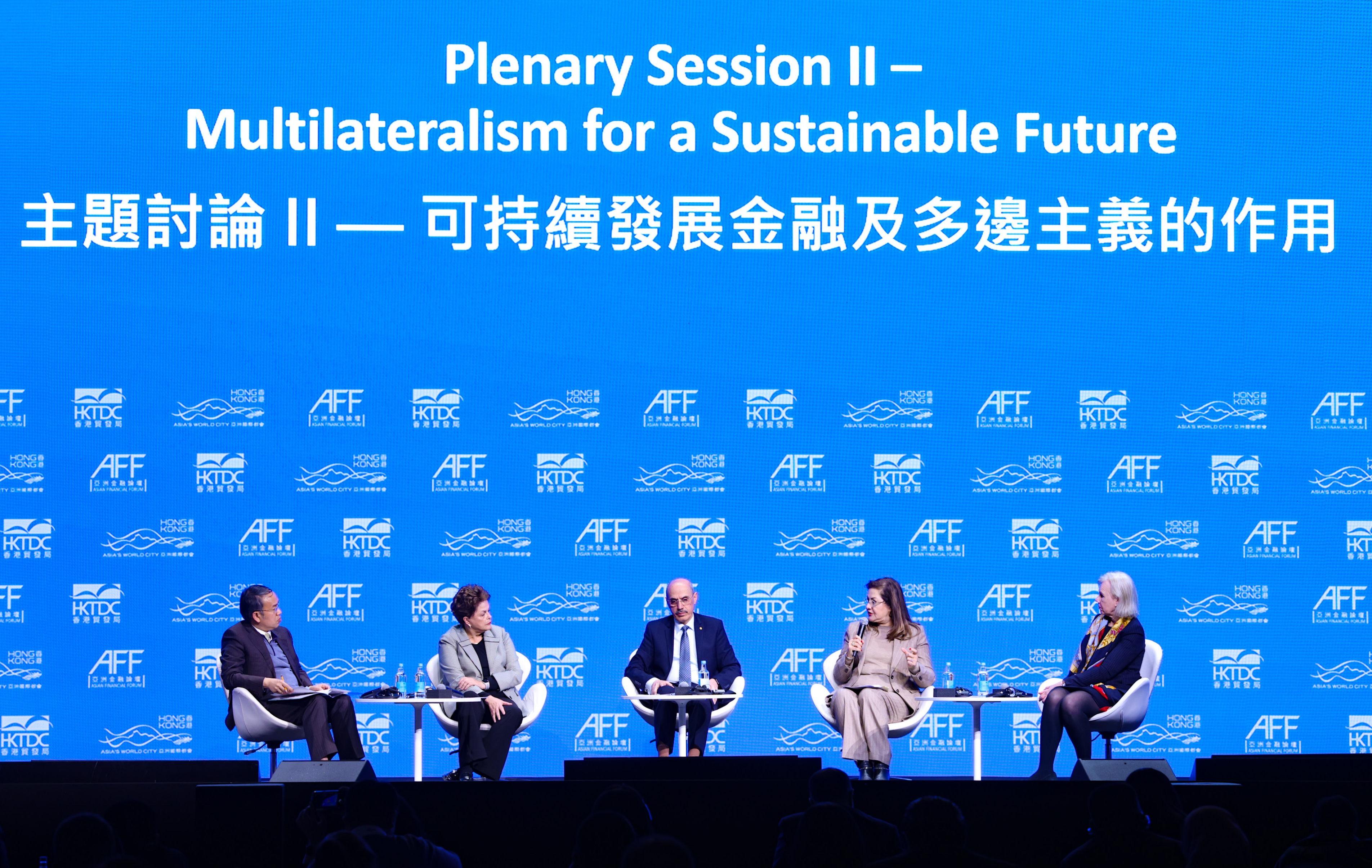 (From left) Secretary for Financial Services and the Treasury of the HKSAR government Christopher Hui Ching-yu, President of New Development Bank Dilma Rousseff, President of Islamic Development Bank Muhammad Sulaiman Al Jasser, Egyptian Minister of Planning and Economic Development Hala El Said, and Deputy Director-General of the Directorate‑General for Financial Stability, Financial Services and Capital Markets Union, European Commission, Alexandra Jour-Schroede attend a plenary session titled "Multilateralism for a Sustainable Future" at the Asian Financial Forum in Hong Kong on Jan 24, 2024. (CALVIN NG / CHINA DAILY)
(From left) Secretary for Financial Services and the Treasury of the HKSAR government Christopher Hui Ching-yu, President of New Development Bank Dilma Rousseff, President of Islamic Development Bank Muhammad Sulaiman Al Jasser, Egyptian Minister of Planning and Economic Development Hala El Said, and Deputy Director-General of the Directorate‑General for Financial Stability, Financial Services and Capital Markets Union, European Commission, Alexandra Jour-Schroede attend a plenary session titled "Multilateralism for a Sustainable Future" at the Asian Financial Forum in Hong Kong on Jan 24, 2024. (CALVIN NG / CHINA DAILY)
Current international financial mechanisms are increasing the burden on the Global South and change is needed to ensure sustainable development for all, according to speakers at a forum in Hong Kong.
Participants in a session discussed the importance of multilateralism and sustainable finance within nations to advance important global agenda, on Wednesday at the 17th Asian Financial Forum, a two-day event themed “Multilateral Cooperation for a Shared Tomorrow”,
The world is facing overlapping crisis, and more than one decade ago, protectionism was strongly introduced in international trade by the raise in tariffs. Only rule changes can address long-standing financial problems rooted in inequality, especially the disparity in interest rates, according to Dilma Rousseff, president of the New Development Bank, the Shanghai-headquartered multilateral development bank established by the BRICS states.
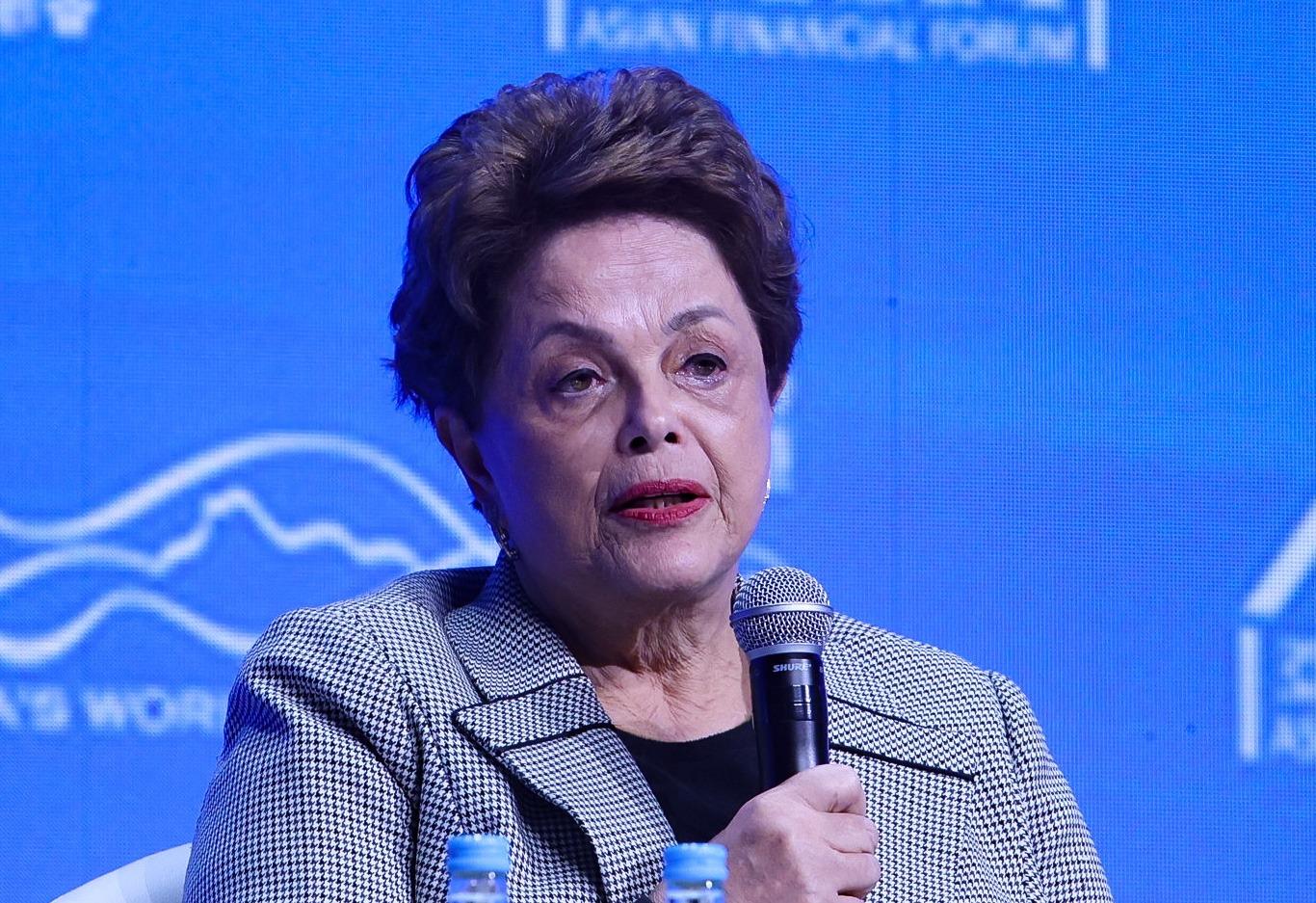 President of the New Development Bank Dilma Rousseff speaks during a plenary session titled "Multilateralism for a Sustainable Future" at the Asian Financial Forum in Hong Kong on Jan 24, 2024. (CALVIN NG / CHINA DAILY)
President of the New Development Bank Dilma Rousseff speaks during a plenary session titled "Multilateralism for a Sustainable Future" at the Asian Financial Forum in Hong Kong on Jan 24, 2024. (CALVIN NG / CHINA DAILY)
In the important field of finance, she noted that there is a need to understand the sources of finance and the high level of interest rates. Some countries do not have any resources or financial capacity but they have to pay high interest rates because the rules of the existent game often give developing countries lower grades in loans. This means that the poorer nations often have to pay much higher interest rates to the developed countries, even without considering the cost of exchange rate changes.
For example, entities in African countries borrow at a rate that is four times higher than in the United States and eight times higher than in Germany, Rousseff said. “It is a consensus that we need to bridge this huge financial gap,” she said.
“We have to change the rules of the game” to answer for the needs of sustainable development of the Global South, especially the least- and less-developing world, Rousseff told the forum.
While all countries must address the urgent global task of fighting climate change, developing countries do not bear the same responsibility for what happened to the climate, she noted.
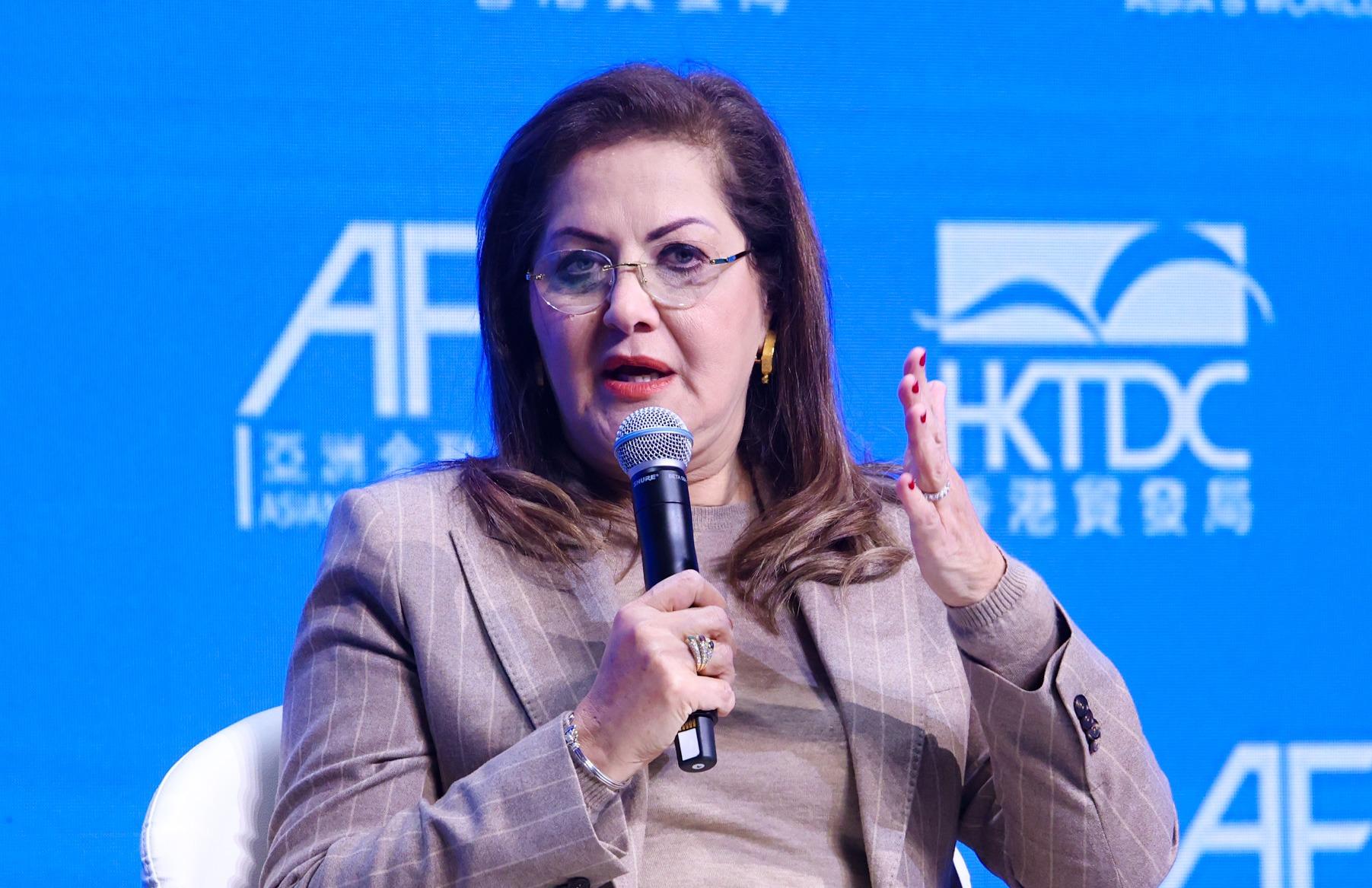 Egyptian Minister of Planning and Economic Development Hala El Said speaks during a plenary session titled "Multilateralism for a Sustainable Future" at the Asian Financial Forum in Hong Kong on Jan 24, 2024. (CALVIN NG / CHINA DAILY)
Egyptian Minister of Planning and Economic Development Hala El Said speaks during a plenary session titled "Multilateralism for a Sustainable Future" at the Asian Financial Forum in Hong Kong on Jan 24, 2024. (CALVIN NG / CHINA DAILY)
Hala El Said, the minister of planning and economic development of Egypt, highlighted the significance of debt sustainability. During the post-pandemic period, the issue has emerged as a critical challenge, especially for developing countries, in the wake of rising debt levels and changing global financial conditions, she said.
ALSO READ: Officials: HK to play bigger role in strengthening global ties
According to the minister, developing countries' external debt amounted to $8.7 trillion in 2022. “The increase in global interest rates, a consequence of monetary policy tightening by central banks like the (US) Federal Reserve and the European Central Bank, has escalated debt servicing costs, particularly for countries with foreign currency-denominated debts,” she said.
The minister noted that developing economies, constrained by limited fiscal space and structural difficulties, continue to struggle to fund industrial and innovation policies. The growing technological divide could further hinder the ability of developing countries to strengthen their productive capacities and move closer to realizing the sustainable development goals (SDGs), she added.
Apart from debt, El Said also mentioned that, at the midpoint of the implementation of the 2030 Agenda for Sustainable Development, the world remains vulnerable to disruptive shocks, including a rapidly unfolding climate crisis and escalating conflicts.
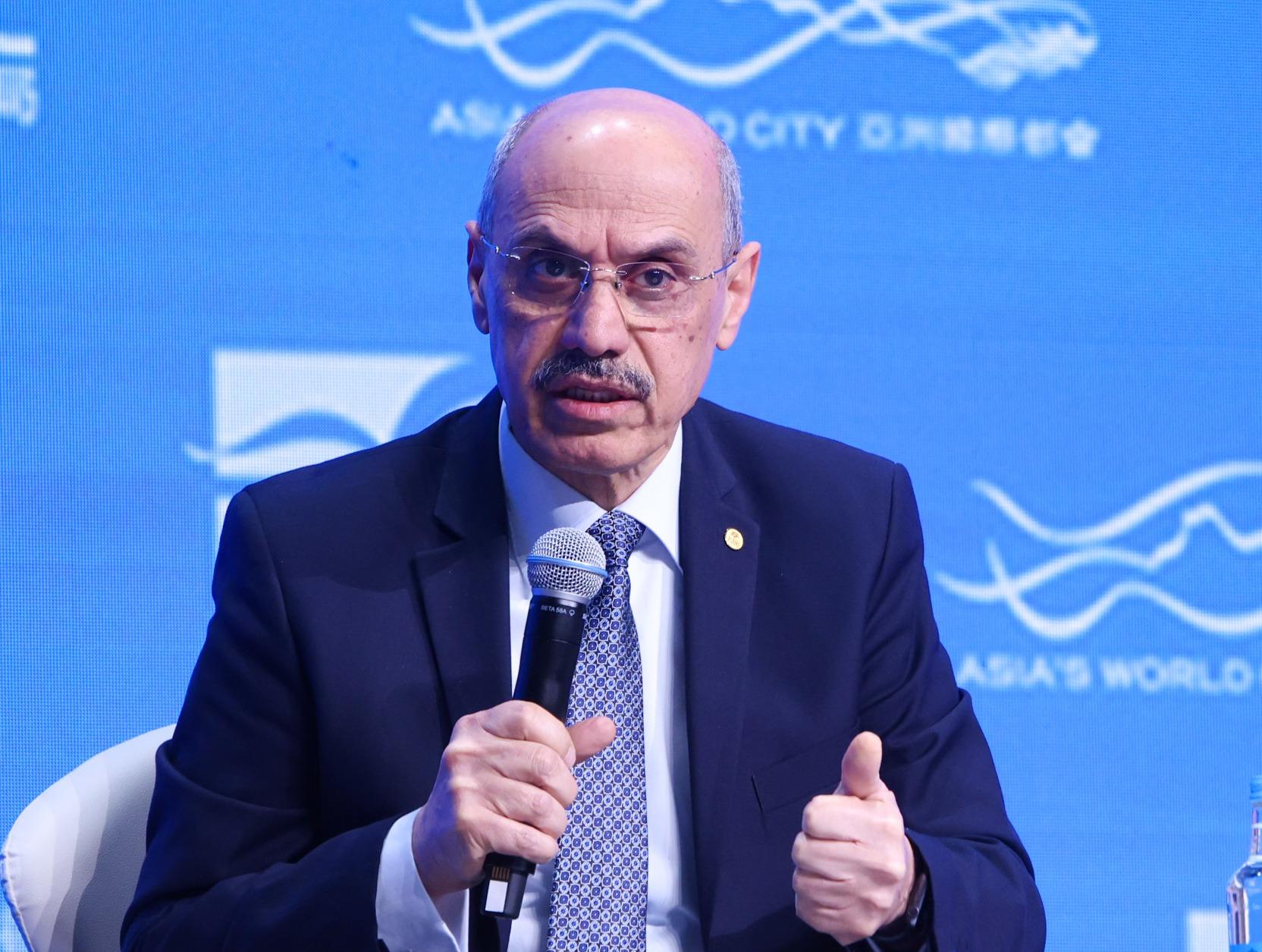 President of the Islamic Development Bank Muhammad Sulaiman Al Jasser speaks during a plenary session titled "Multilateralism for a Sustainable Future" at the Asian Financial Forum in Hong Kong on Jan 24, 2024. (CALVIN NG / CHINA DAILY)
President of the Islamic Development Bank Muhammad Sulaiman Al Jasser speaks during a plenary session titled "Multilateralism for a Sustainable Future" at the Asian Financial Forum in Hong Kong on Jan 24, 2024. (CALVIN NG / CHINA DAILY)
The topic of sustainability and multilateralism is very timely, said Muhammad Sulaiman Al Jasser, president of the Islamic Development Bank, a multilateral development finance institution based in Jeddah, Saudi Arabia.
“The developmental challenges facing the member countries of my institution and other institutions are immense,” he said, adding that finance takes the center stage.
“I believe that now we need all the multilateral development institutions to pool not only the resources, but (also) the expertise in order to bring about the change that is necessary, and it’s not just (in regard to) the environment,” he said.
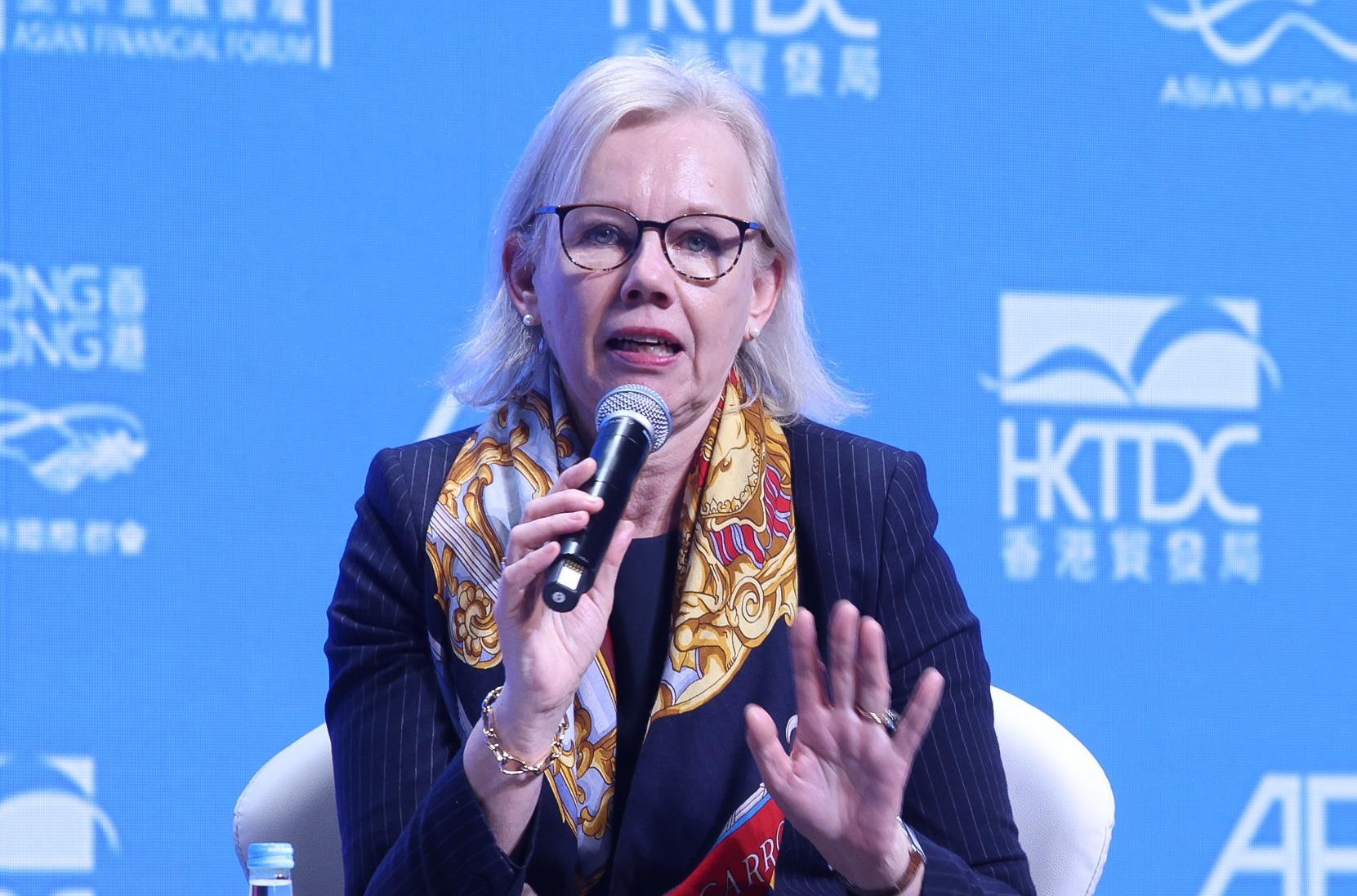 Deputy Director-General of the Directorate‑General for Financial Stability, Financial Services and Capital Markets Union, European Commission, Alexandra Jour-Schroeder speaks during a plenary session titled "Multilateralism for a Sustainable Future" at the Asian Financial Forum in Hong Kong on Jan 24, 2024. (CALVIN NG / CHINA DAILY)
Deputy Director-General of the Directorate‑General for Financial Stability, Financial Services and Capital Markets Union, European Commission, Alexandra Jour-Schroeder speaks during a plenary session titled "Multilateralism for a Sustainable Future" at the Asian Financial Forum in Hong Kong on Jan 24, 2024. (CALVIN NG / CHINA DAILY)
Alexandra Jour-Schroeder, deputy director-general, Directorate‑General for Financial Stability, Financial Services and Capital Markets Union, European Commission talked about how the European Union has been able to put more private money into green projects so far for climate sustainability.
On how to bring investors to green initiatives, he said that this is normally done by disclosures, or giving information for investors to learn about what they should do, what they want and they could do.
READ MORE: Collaboration key to growth, experts tell forum in HK
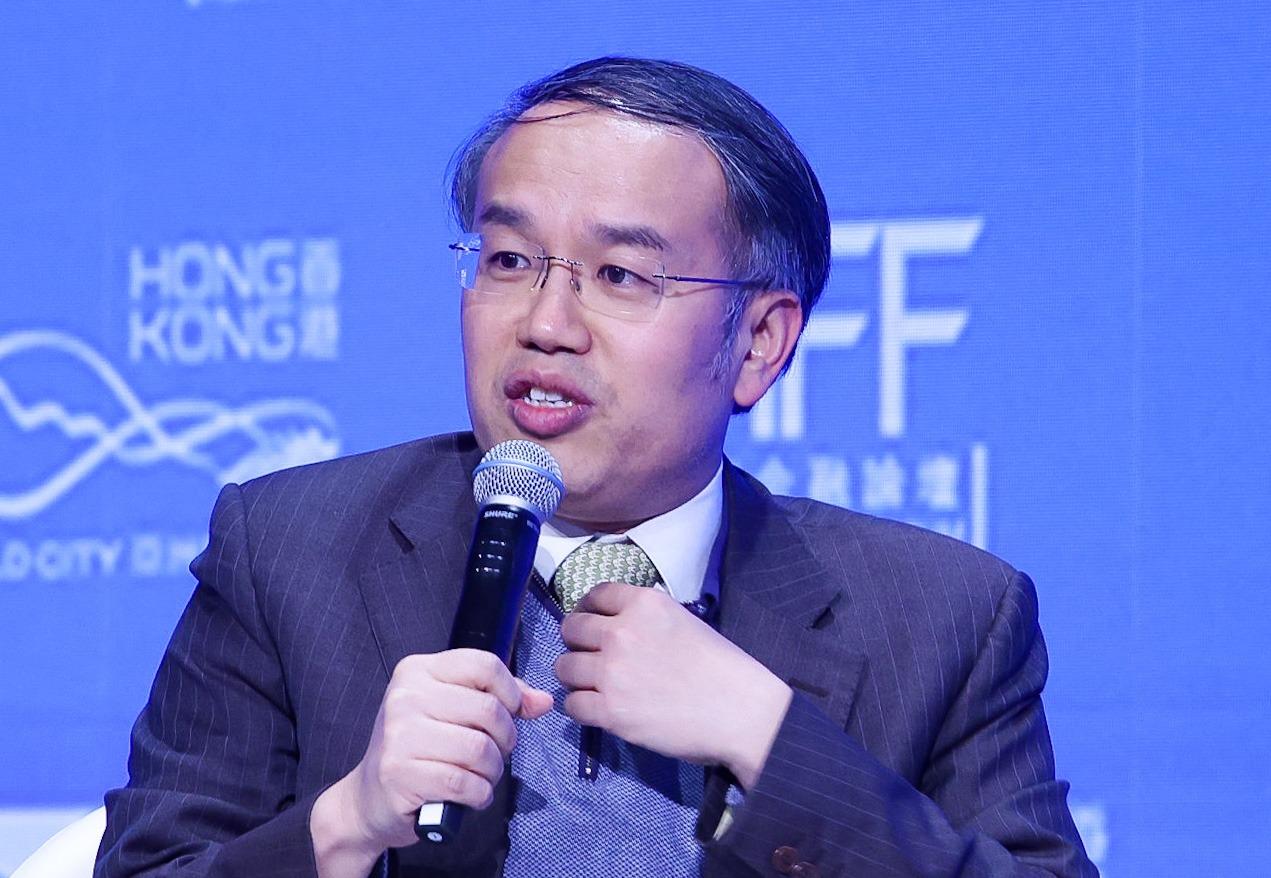 Secretary for Financial Services and the Treasury Christopher Hui Ching-yu speaks during a plenary session titled "Multilateralism for a Sustainable Future" at the Asian Financial Forum in Hong Kong on Jan 24, 2024. (CALVIN NG / CHINA DAILY)
Secretary for Financial Services and the Treasury Christopher Hui Ching-yu speaks during a plenary session titled "Multilateralism for a Sustainable Future" at the Asian Financial Forum in Hong Kong on Jan 24, 2024. (CALVIN NG / CHINA DAILY)
Christopher Hui Ching-yu, secretary for financial services and the treasury of the Hong Kong Special Administrative Region government, chaired the session and urged collective action of finance for sustainability.


